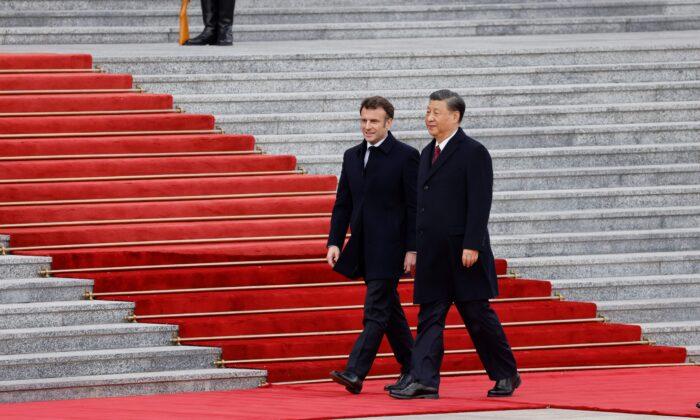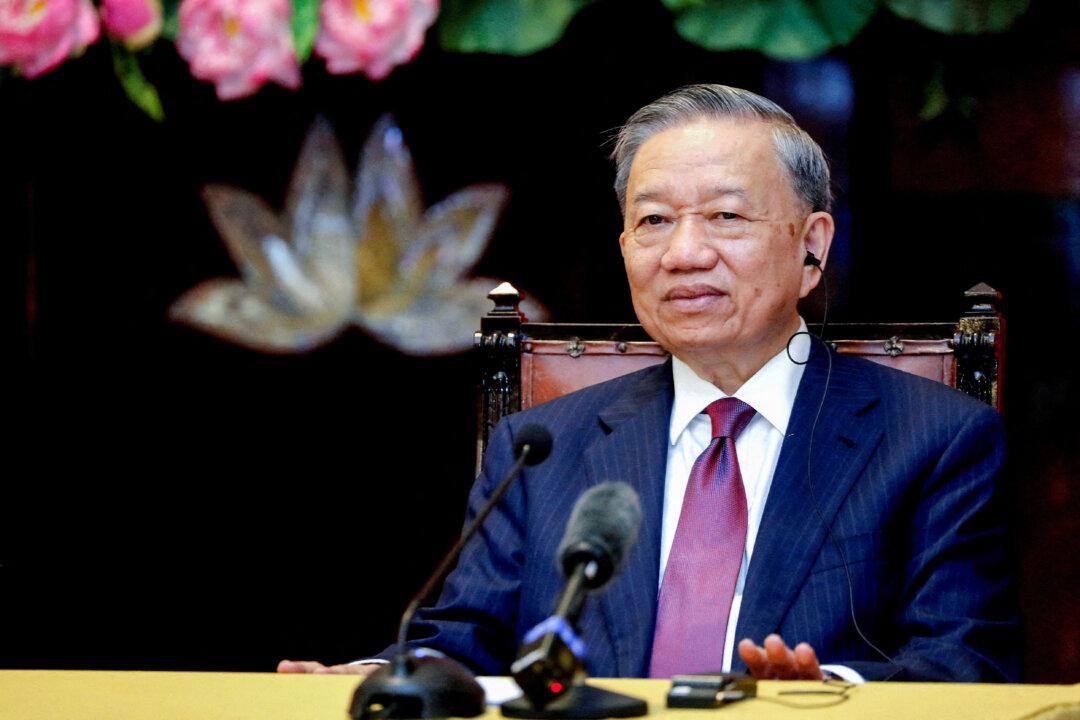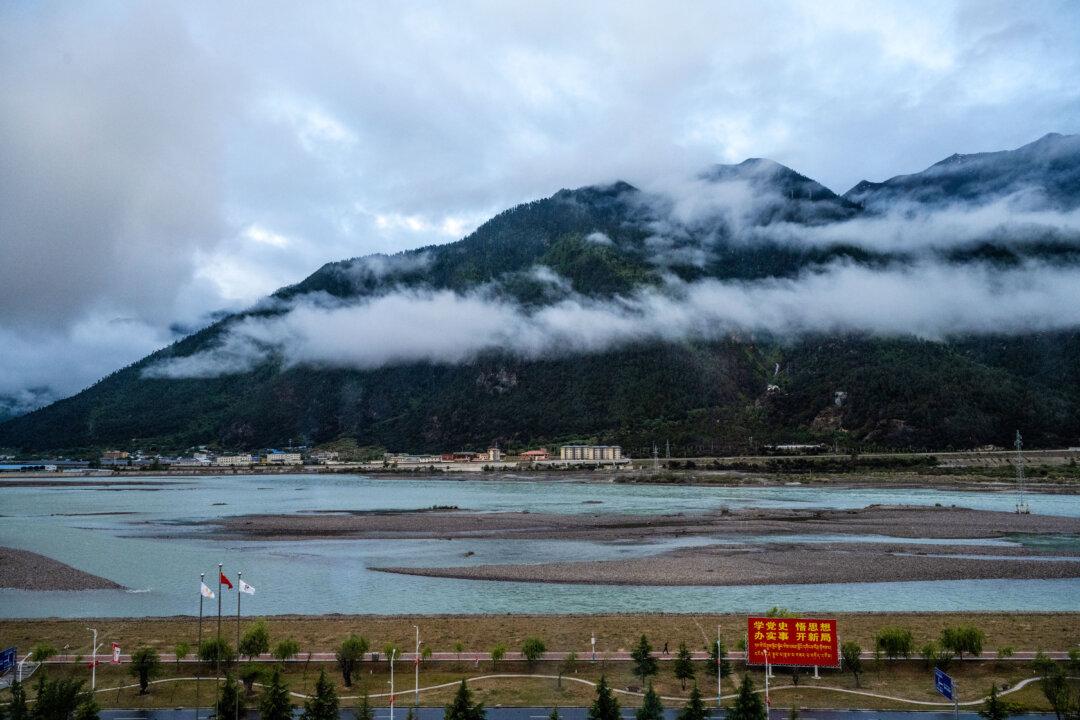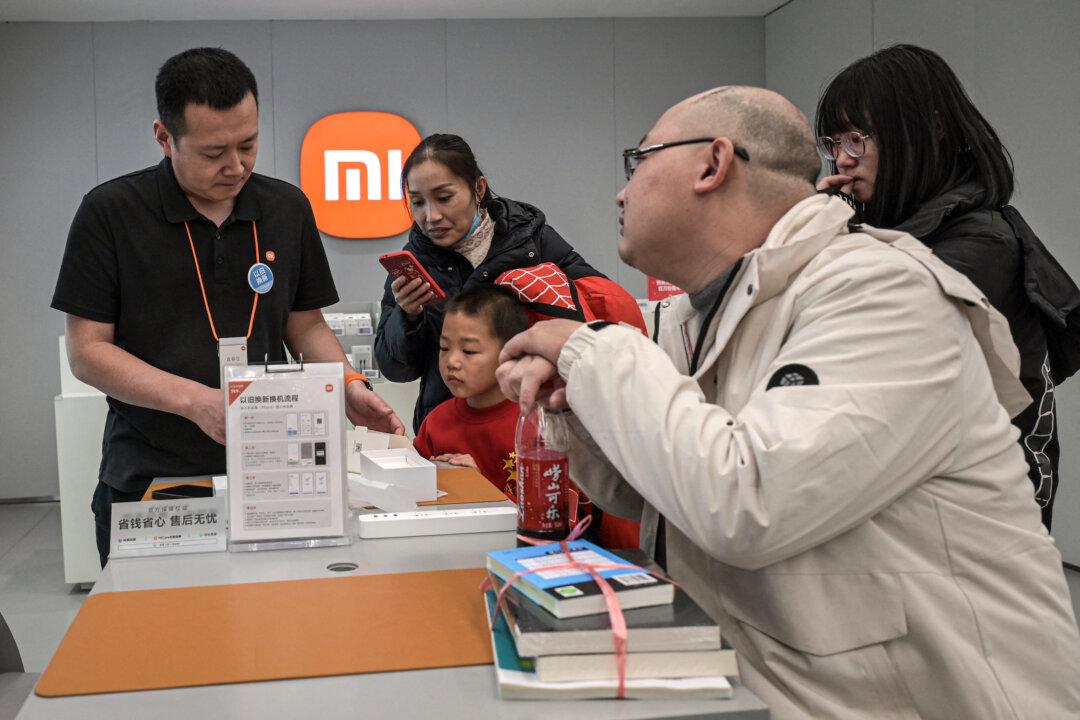The Chinese communist regime’s ambassador to France publicly claimed on April 21 that Crimea “belongs to Russia from the very beginning,” and that post-USSR republics “have no effective status” in international law, infuriating European leaders.
Lu Shaye, a Chinese regime “wolf warrior” diplomat who often makes aggressive and controversial remarks, was interviewed by French media on April 21. When asked about his position on whether Crimea is part of Ukraine, Lu said, “It depends on how you perceive the problem.”
When pressed by journalist Darius Rochebin, Lu said, “It’s not that simple” and that Crimea “belongs to Russia from the very beginning.”
Lu also denied the sovereignty of post-Soviet states.
“In international law, even these ex-Soviet Union countries do not have the status, the effective status, in international law, because there is no international agreement to materialize their status of a sovereign country,” Lu said.
Since the collapse of the Soviet Union’s communist empire in 1991, its former republics, such as Ukraine, Estonia, Latvia, and Lithuania, have become independent sovereign states. The three Baltic states are currently NATO and European Union members.
Lu’s remarks were met with strong pushback from European leaders.
Ukraine’s ambassador to France, Vadym Omelchenko, responded on Twitter, writing that there’s “no room for ambiguity, Crimea is Ukraine” on April 22.
He also drew parallels with China’s own territorial issues that it has with Russia, alluding to the city of Vladivostok.
Vladivostok, known by China as Yongmingcheng, had been China’s territory and in official Chinese maps in the 13th century. Later, the port city was named Haishenwai, which is used in China to this day alongside “Vladivostok,” the Russian imperial name.
The city, as well as the land surrounding it, is the homeland of China’s ruling Manchurian ethnicity of the Qing Dynasty. However, it was annexed by the Tsarist Russian Empire in 1860 after China was defeated by the British and the French during the Second Opium War.

Former Chinese Communist Party (CCP) leader Jiang Zemin signed a treaty with Russian President Vladamir Putin in 2001 titled “Sino-Russian Treaty of Good-Neighborliness, Friendship and Cooperation.”
In recent years, there have been voices in China against the CCP’s official stance on the territories ceded to Russia.
Baltic Countries Push Back
Antoine Bondaz, a China expert at the Paris-based think tank Foundation for Strategic Research, pointed out in a Twitter post that Lu’s remark “denies the very existence of countries like Ukraine, Lithuania, Estonia, Kazakhstan, etc.”Estonia, Latvia, and Lithuania criticized Lu’s remarks and have demanded answers from Beijing.
Minister of Foreign Affairs of Latvia Edgars Rinkevics wrote on Twitter, “Remarks by the Chinese Ambassador in France concerning international law and sovereignty of nations are completely unacceptable. We expect explanation from the Chinese side and complete retraction of this statement.”
Lithuanian Foreign Minister Gabrielius Landsbergis responded on Twitter, “If anyone is still wondering why the Baltic States don’t trust China to ‘broker peace in Ukraine,’ here’s a Chinese ambassador arguing that Crimea is Russian and our countries’ borders have no legal basis.”
Margus Tsahkna, Estonia’s foreign minister, told local media outlet Delfi, “It is sad that a representative of the People’s Republic of China holds such views. Such a position is incomprehensible.”
France responded on April 23 by stating its “full solidarity” with all the allied countries affected by Lu’s remarks, which had acquired their independence “after decades of oppression.”
“On Ukraine specifically, it was internationally recognized within borders including Crimea in 1991 by the entire international community, including China,” a French Foreign Ministry spokesperson said.
On April 23, almost 80 EU lawmakers, alongside the Inter-Parliamentary Alliance on China, sent a letter to France’s Minister for Europe and Foreign Affairs Catherine Colonna asking that the Chinese ambassador be declared persona non grata for his remarks.

Mixture of Soviet Union and Tsarist Russia
The CCP in China had long received backing from the Soviet Union. After the fall of the communist empire, the CCP has maintained close ties with Putin, a former Soviet secret police (KGB) agent turned ruler of Russia.Beijing and Putin’s Russia share a common vision against the West led by the United States. Their “no limits” partnership was agreed to by the Russian and Chinese leaders in February 2022. The CCP has supported Russia’s war in Ukraine.

Gao Yusheng, former Chinese ambassador to Ukraine, pointed out recently at a forum that Putin’s foreign policy is “a mixture of the former Soviet Union and the Tsarist Empire.”
In his more than 30-year diplomatic career, Gao spent time stationed in the former Soviet Union and the countries that used to be Soviet member states.
He said the core and primary direction of the Putin regime’s foreign policy has been to “see the former Soviet Union states as its exclusive sphere of influence and to restore the empire through ‘unification’ dominated by Russia.”




